For a second time I had
– this time together with Stephanie Fenkart, Director at IIP Vienna – the chance to participate – and speak – at the Economic Forum Krynica, in the South East of Krakow. This time it was organized at a special date. It started two days after the 80th anniversary of the terrible attack on Poland by Nazi Germany. This attack and the partition of Poland which followed the Molotov – Ribbentrop pact between Hitler‘s Germany and Stalin‘s Soviet Union, started the Second World War with its enormous killings and destructions. The consequences of that war can still be felt, not least in different approaches in foreign policies and in contradictory attitudes towards Russia but to a lesser extent also towards Germany.
EU EAST AND EU WEST
The Economic Forum in Krynica is a very valuable opportunity to look beyond the common European policies and analyze the different approaches between East and West. Certainly, this is an oversimplification, there is no unitary EU West and no unitary EU East. Germany has not the same foreign affairs approach as France etc. And between the Eastern Europe countries and even between the three Baltic countries itself we can find different approaches. But there are some common characteristics especially for countries which experienced Soviet occupation and who suffered under it more strongly. Poland is a good example of a country that looks for a specific approach to several issues concerning the EU’s foreign and security policy and this is mostly connected to the relations to Russia. It is not just bad will which leads to intentionally different policies. History plays an important role. And as one Polish participant said: “For us World War II did not end 1945 but 1989.” And for some the war is still going on.
Poland in its form as Polish – Lithuanian Union was a big European player but it was destroyed, and Poland realized three partitions. At two of them in addition to Russia, Prussia and also Austria were part of and beneficiary of these partitions by winning some of its territory. And then came the German occupation and cruel suppression by the Nazis. And the liberation was followed by Russian domination and Russian/communist atrocities. Far too long Poland was a victim and an object – at least a spectator – of decisions made by powers in its East and the West. Poles could not decide on their own policies and pursue an active foreign policy.
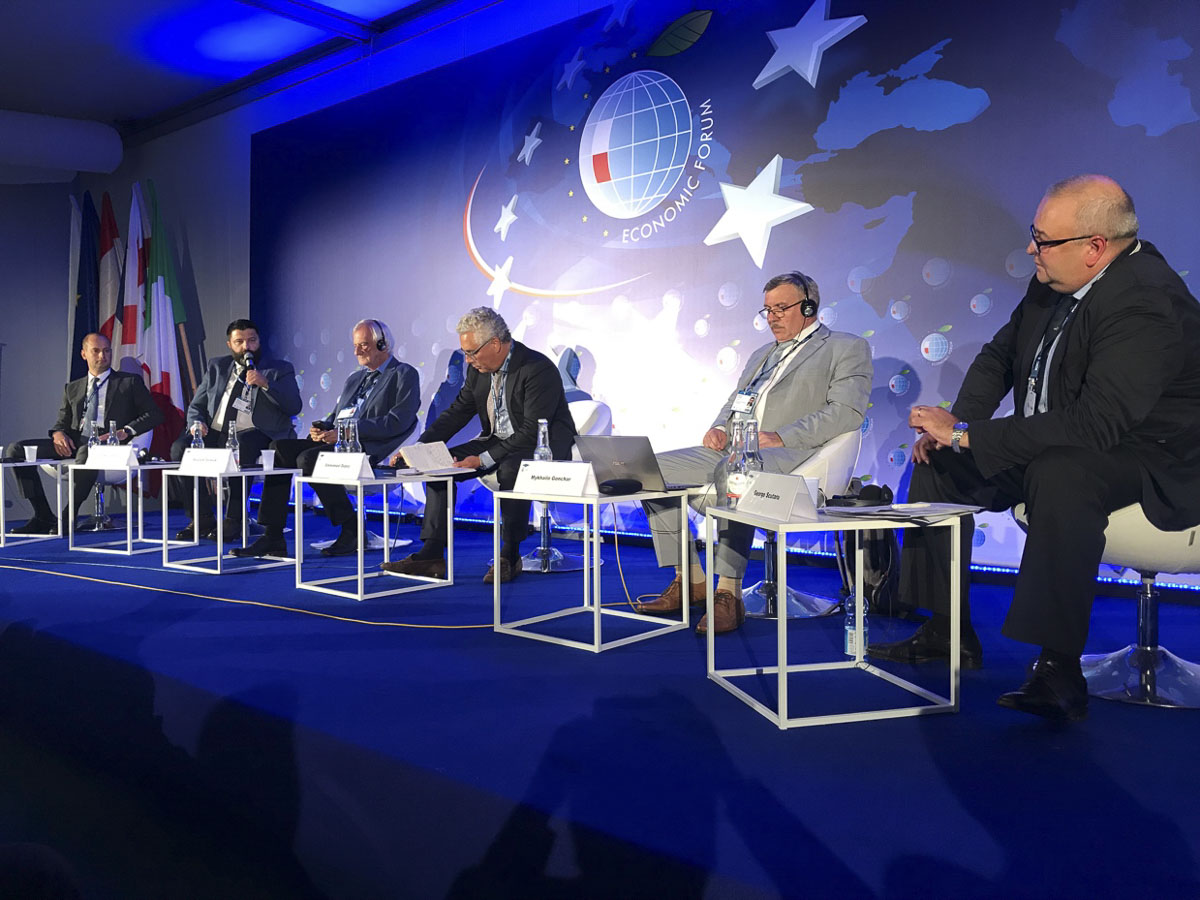
Russia is not making it easy to forget the traumas of people in former Soviet dominated and occupied countries. Not only regretted President Putin the collapse of the Soviet Union but recently the Russian foreign ministry defined the Molotov – Ribbentrop pact as a necessary step due the anti – Soviet policies of the West and Poland. This statement on the occasion of the 80th anniversary of the German and then Soviet attack on Poland is demonstrating the very one-sided approach of Russian leadership today.
So, Poland was longing intensively for joining the European Union and in order to be embedded in a Western European and/or Transatlantic community. But at the same time, it was also looking for respect as a big country and an important actor inside but also outside the EU. The “appeasement” of many EU countries towards Russia – mostly from the West – after the aggression against Georgia and to some extent even after the aggression against Ukraine offered Poland an additional reason for underlining the differences to policies of some of the west Europeans.
Russia and especially Putin’s policies in the EU‘s (and Russia’s) neighborhood is a dividing factor inside the EU. This is especially true for Poland but also for the Baltic countries and Romania. All these countries have been victims of Russian/Soviet polices of annexation and domination. In addition, these countries have realized different territorial disputes with Russia/Soviet Union. Furthermore, these countries have a special relationship with the US as they see the US as the more reliable opponent to Russia. But they are also looking for good relations with China – which is nowadays in contradiction to a good relationship with the US. But for them this special Chinese connection is underlining their independence from Brussel’s interference. There is no strong visible result from the engagement in the framework of the 17plus process between China and seventeen European countries. But the economic factors are not so much relevant as the political factor. And that is also true for Hungary which concerning Russia stands rather on the other side of Poland – like the authoritarian right wing in the West.
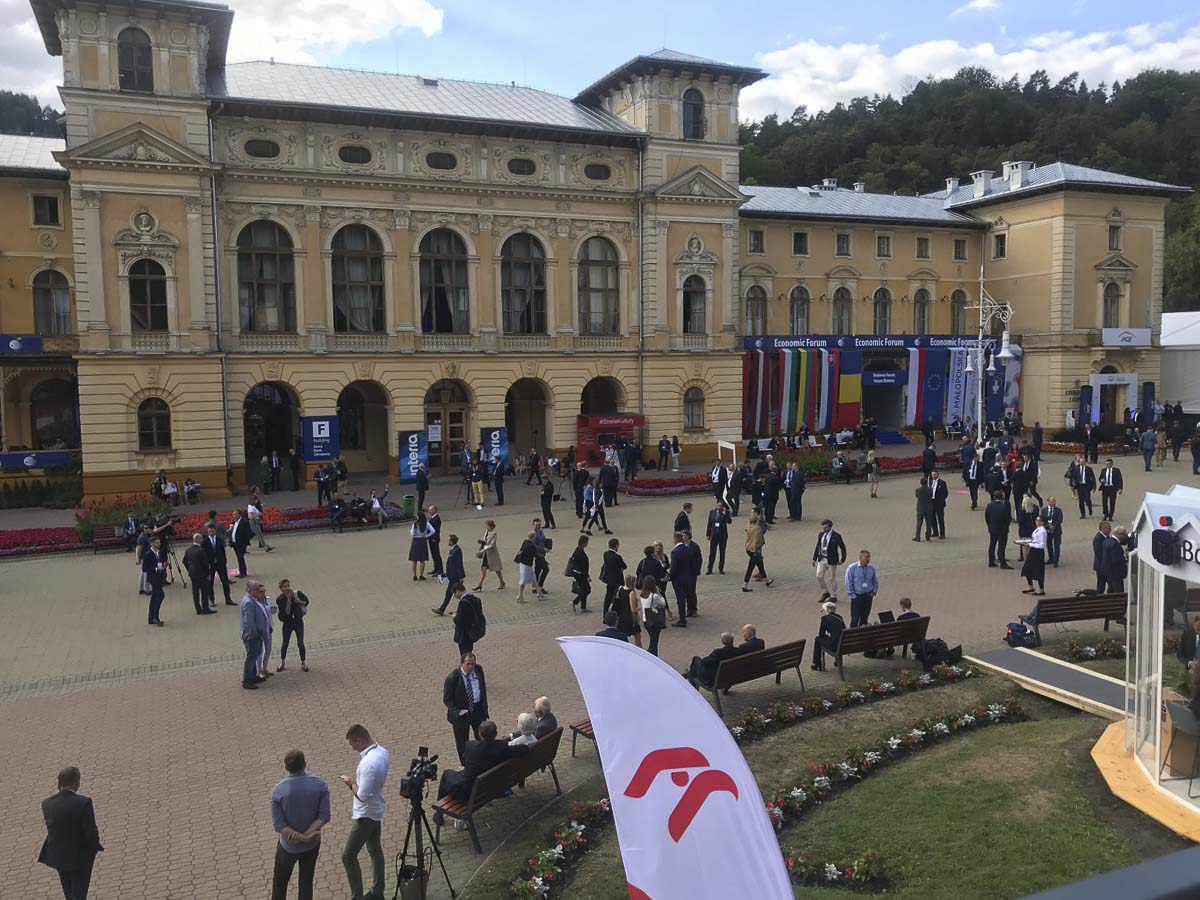
TEST CASE UKRAINE
Particularly Poland is not only negatively oriented towards the strategy of the EU West. In their neighbor Ukraine the Polish found a partner/possibility for a special and “independent” approach. Ukraine is for the Polish politicians – especially from the right wing – a case for demonstrating their leadership in opposing Russian aggression and in imposing on EU West a policy of strength. At the debates in Krynica the different approaches between Polish and Ukrainian representatives and those from France and Germany became very clear. “Russia does not deserve a gift by revitalizing the Normandy format of talks about Ukraine and by inviting Putin again to join the G7” criticized several participants the recent Macron initiative. The solution lies not in appeasing Russia but in showing strength and sending new military forces to Russia’s neighbors and into the Black Sea. Poland, the Baltic states and also Romania are arguing for strength and military presence and are not considering ways of compromise and settlements. And many Ukrainians are supporting them in this political approach.
The EU West on the other hand is looking for a compromise and some agreement with Russia. The argument of one participant of the EU West at a discussion in Krynica, Ukraine could be a bridge between EU and Russia could not be accepted neither by the Polish nor by the Ukrainian participants. They want to be clearly in the Transatlantic Community and not between. And they cannot even accept the argument, that Russia’s position is not changed by sanctions. They call for stronger sanctions, which is very unrealistic in view of many European hesitations about more sanctions. And they cannot accept what one Russian participant said: “The Ukraine want to defeat Putin and his policies but by insisting on sanctions they strengthen Putin as Russian President”.
Anyway, for Poland and some of its “allies” it is important to call for a strong policy against Russia and to reject appeasement. As with other bigger EU countries, for them membership in the EU does not exclude own policies in their special sphere of interest. In this respect these countries are copying and enhancing the existing weakness of EU‘s foreign and security policies. To have a common line is not so important as having the “correct” line.
Nevertheless, it would be necessary to invite all EU countries to formulate common policies for all regions irrespective of their specific neighborhood to the countries concerned and to crisis spots in the EU’s neighborhood. The present situation shows, that the cohesion process concerning foreign and security policies is far from complete. There is a fundamental gap between countries who have already been for a long time actors of their own policies – even when they have been occupied for some horrible but relatively short periods – and countries which have been for a long time reduced to being objects of decisions by other – bigger and mightier – powers.
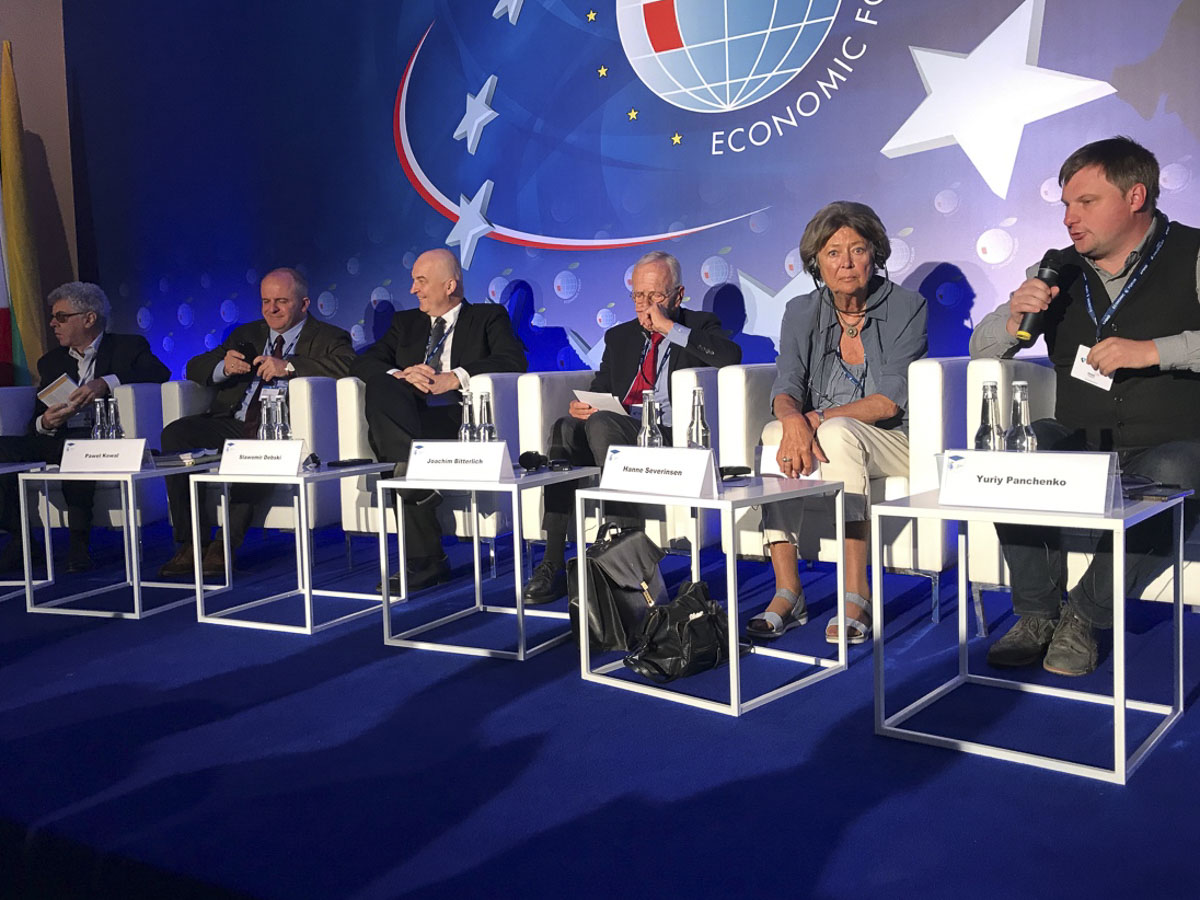
THE CULTURAL FACTOR
But foreign policy cannot be regarded separately from domestic and cultural policies. As some representatives from the Baltic countries and Poland underlined, they are still agricultural societies and rejecting a too strong modernization and domination of urban cultures. This is also creating some gaps towards countries and governments which are more open for globalization and openness towards receiving refugees and migrants. But this is also influencing a growing part of the societies in EU West.
In fact, the nostalgic and backward oriented approach of the present Polish government, which is also supported by some ultra-orthodox circles of the Catholic church is very close to the attitude promoted by President Putin and the Russian Orthodox Church. Only recently the Krakow archbishop has warned that after having defeated the red danger of Communists another danger is looming, the rainbow alliance of homosexuals etc. Many facets of this conservative attitude are also supported by the right wing in the EU West which is on the other hand supporting and glorifying Putin’s domestic and foreign policies. And of course, this is also a cultural link between the present Polish government and Orban’s Hungary and Salvini’s Northern League in Italy in spite of them being close to Russia of Putin. Attitudes to Russia are dividing the ultra-orthodox and often xenophobic right, but cultural attitudes are aligning them.
ENLARGEMENT
Poland is specially promoting the integration of their eastern neighbors into the EU. For them this is also another step in reducing the Russian influence. In this respect they have some difficulties in promoting Armenia for closer ties with the EU as this country is traditionally aligned to Russia. But all EU member countries have to recognize that EU‘s neighbors are not going the same ways. In the debate of the Eastern Partnership one could clearly see, that Ukraine and Armenia, Moldova and Belarus, Azerbaijan and Georgia cannot be treated equally and their individual approaches must be respected. So, looking for a stronger unity inside the EU does not exclude the acceptance of differences amidst our neighbors. To win them, we must respect their specific geo-political situation and not force them into an anti/Russian corset.
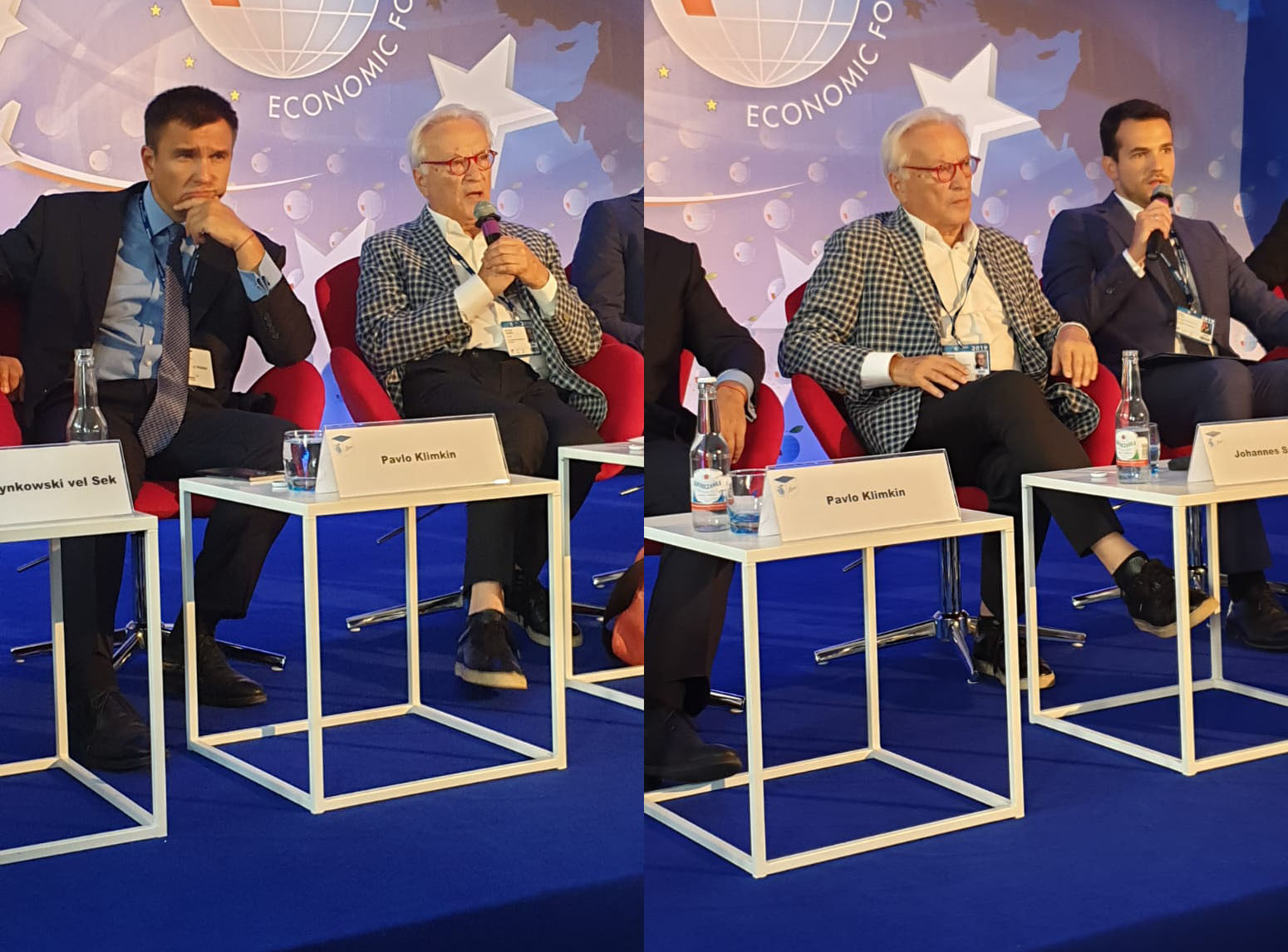
At the discussion on enlargement – for which I was invited as one of the speakers – we could not find an agreement either. But it was not so much a question of East and West as between realists/skeptics – like the former Czech foreign minister Cyril Svoboda – and myself who was pleading to find ways of progressive accession to the EU. There is no doubt, that the process will need a lot of time. And we need reforms of the EU itself to make it more efficient and give it more global strength. The EU must prepare itself for additional accession, maybe with founding a core group of the Euro countries. But the countries of Europe who want to join and who are doing the necessary reform steps should be progressively connected to the EU – if they so wish. In this I agreed with the former Croat foreign Minister Stier, who said we should maintain the target of accession but change the process of accession.
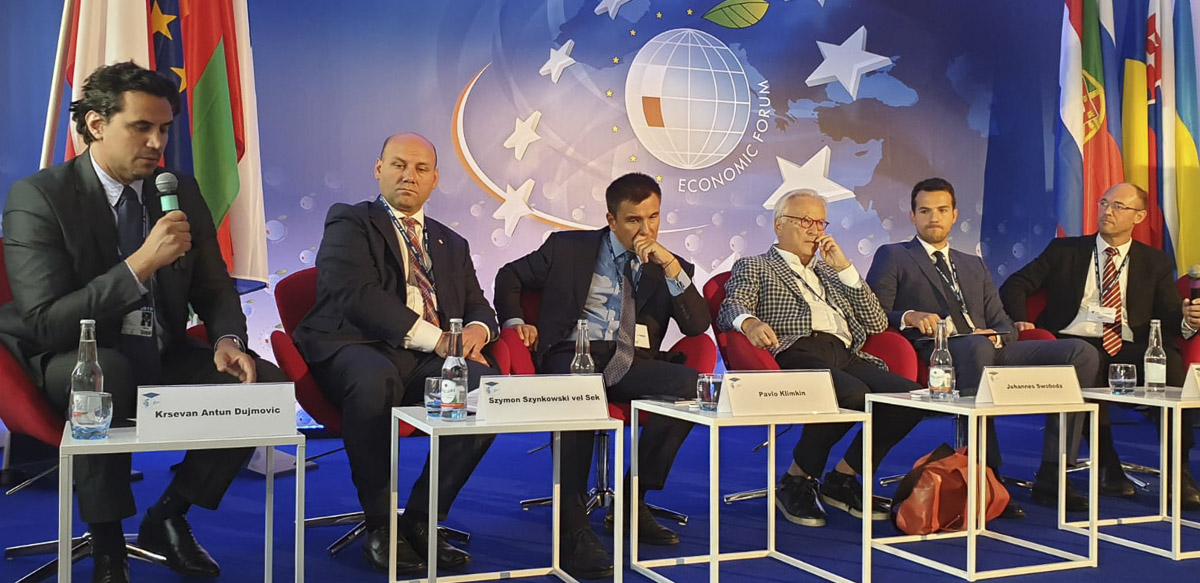
All those who want to create permanently a dividing line between the present EU members and the “rest” must declare how this should work. How should we manage the resulting emigration out of these countries? How should the economic connectivity be managed? Should we leave these countries to the mercy of Russia, China and Turkey? It is neither good to repeat vis a vis our neighbors the mantra of “the accession will come, be patient” nor to forget about the countries, which have not succeeded yet in joining the EU family. We need a new realistic, pragmatic but also optimistic concept. This is primarily necessary for the countries in the Western Balkans but also for a country like Ukraine. For Ukraine – and Moldavia and Georgia – it is certainly an even longer way to go, but we should not deny them an EU future forever.
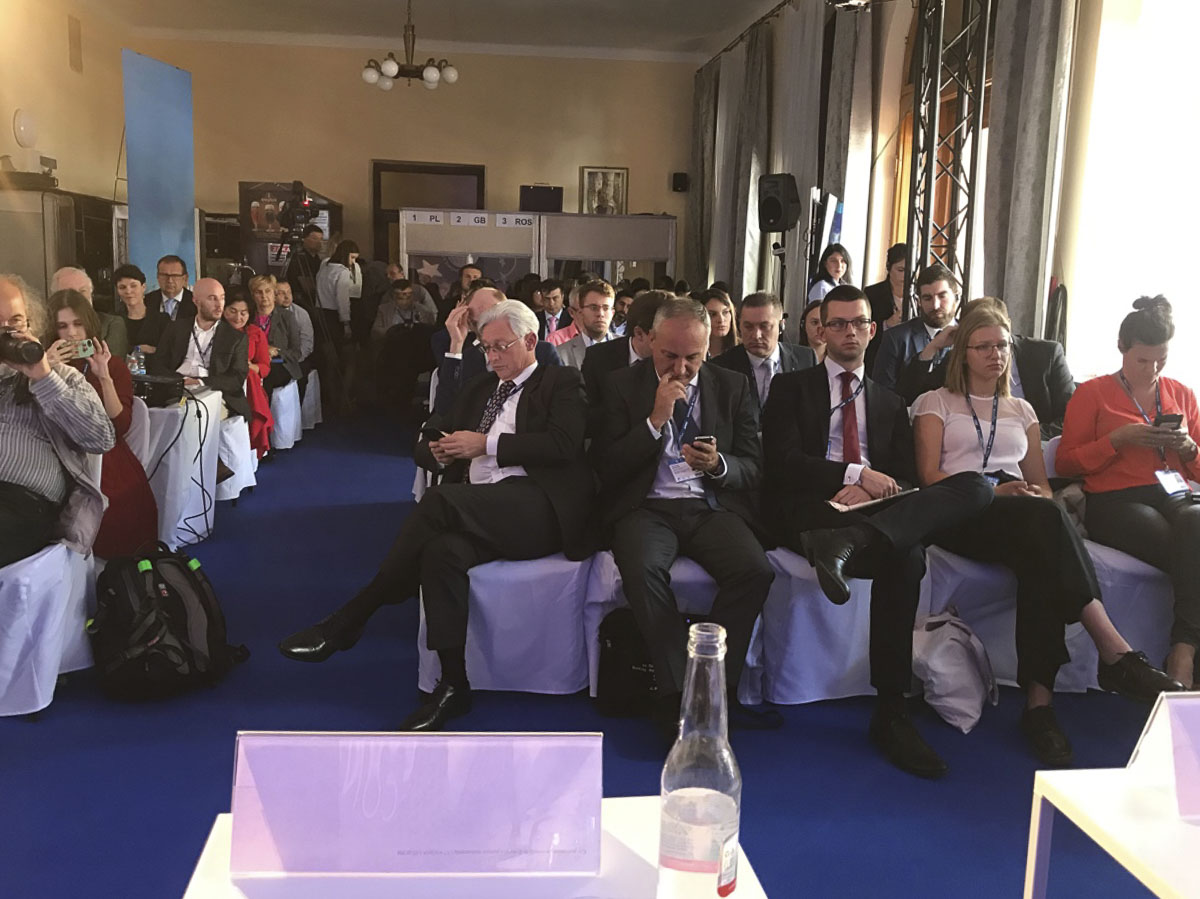
CONCLUSION
It needs a lot of time but also many efforts to reach a common and cohesive foreign policy of the EU. Some speak of Old and New Europe, I rather prefer the expressions EU West and EU East without implying that there are strict lines dividing these countries. But history and especially the Soviet occupation and/or domination made and still make a difference. Especially on those countries who had territorial conflicts already before the division of Europe after Yalta. Not enough effort and energy have been spent after accession in understanding these historical roots. An EU which is built on dialogue and promotes dialogue in all conflict zones did not engage itself enough in EU internal dialogues. The meeting in Krynica was and is a platform of such a dialogue – even if there is not ample readiness to accept or at least to understand some arguments and positions of the “other” side.
